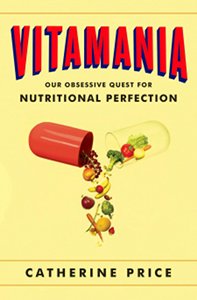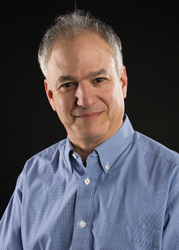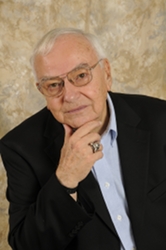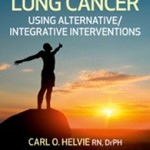Posted by Elena del Valle on June 12, 2017

Lara Pizzorno, author, Your Bones
Photo: Lara Pizzorno
A podcast interview with Lara Pizzorno, author, Your Bones, is available in the Podcast Section of Hispanic Marketing & Public Relations, HispanicMPR.com. During the podcast, she discusses why your bones need strontium with Elena del Valle, host of the HispanicMPR.com podcast.
A member of the American Medical Writers Association for more than 25 years, Lara is the editor of Longevity Medicine Review, and senior medical editor for Salugenecists, Inc., and Integrative Medicine Advisors, LLC. She regularly writes review articles for physicians on issues related to healthy aging for Integrative Medicine: A Clinician’s Journal, covers the breaking research on bone health via video clips and blogs available at AlgaeCal.com, and edits The World’s Healthiest Foods weekly newsletter. A member of the American College of Nutrition, she is a contributing author to the Textbook of Functional Medicine, the Textbook of Natural Medicine, and Integrative Therapies for Depression; co-author of The Encyclopedia of Healing Foods, and lead author of Natural Medicine Instructions for Patients and of Your Bones: How You Can Prevent Osteoporosis & Have Strong Bones for Life, Naturally, first and second editions, which has been translated into German and Polish.
To listen to the interview, click on the play button below, scroll down until you see “Podcast” on the right hand side, then select “HMPR Lara Pizzorno” and click on the play button below or download the MP3 file to your iPod or MP3 player to listen on the go, in your car or at home from the RSS feed. Some software will not allow flash, which may be necessary for the play button and podcast player. If that is your case, you will need to download the file to play it. To download it, click on the arrow of the recording you wish to copy and save it to disk. The podcast will remain listed in the June 2017 section of the podcast archive.
Posted by Elena del Valle on November 14, 2016

Kevin Spelman, Ph.D., EVP, Usana Health Sciences
Photo: Usana Health Sciences
A podcast interview with Kevin Spelman, Ph.D., executive vice president, Research and Development division at Usana Health Sciences, is available in the Podcast Section of Hispanic Marketing & Public Relations, HispanicMPR.com. During the podcast, he discusses the science of cellular communication with Elena del Valle, host of the HispanicMPR.com podcast.
Kevin is a 29-year veteran of the natural products industry. Prior to that, he directed quality control and research and development for the largest manufacturer of liquid extracts in the United States. He is a past National Institutes of Health postdoctoral fellow and Marie Curie research fellow in the European Union, and has published 27 scientific papers. He also advised the White House Commission on Complementary and Alternative Medicine and provided expert testimony to the Maryland House of Delegates and the Maryland Senate.
His past research includes molecular biology of the brain and ovarian cancer, as well as clinical investigations, immunological studies, and chemical analysis on multiple natural products. International research includes the analysis of nutrient levels in teenage girls in West Africa, working with children with neurological disorders in Central America, and researching phytochemicals to treat malaria in Paris. Kevin is also an adjunct assistant professor at Massachusetts College of Pharmacy and Health Sciences, an adjunct professor of botanical medicine at National College of Natural Medicine, and a lecturer at the Maryland University of Integrative Health.
To listen to the interview, scroll down until you see “Podcast” on the right hand side, then select “HMPR Kevin Spelman, PhD” and click on the play button below or download the MP3 file to your iPod or MP3 player to listen on the go, in your car or at home from the RSS feed. Some software will not allow flash, which may be necessary for the play button and podcast player. If that is your case, you will need to download the file to play it. To download it, click on the arrow of the recording you wish to copy and save it to disk. The podcast will remain listed in the November 2016 section of the podcast archive.
Posted by Elena del Valle on October 21, 2015

Vitamania*
A 2011 Journal of Nutrition report indicates most consumers rely on foods fortified or enriched with synthetic vitamins for their essential micro nutrient intake. That is not surprising given that most of the vitamins we consume today are synthetic, according to Catherine Price, author, Vitamania. What may surprise many is that while in the early years of synthetic vitamin development the United States played an important role, today most of the market is under the corporate thumb of two European companies. And the majority of their production facilities are in China.
Last week in my note about Vitamania (see Journalist believes devotion to supplements keeps us from good health) I indicated Catherine Price, the author, had declined to answer questions. It had been two weeks since I had sent her questions and the deadline for replies was long past. Saturday, October 17, 2015, I received an answer.

Catherine Price, author, Vitamania*
Below are the questions and answers:
HispanicMPR.com
What was the main reason you wrote the book (other than the question your husband asked you in Lithuania)?
Catherine Price:
I wanted to gain a better understanding of a subject I took for granted. I also was curious about how the story of vitamins might change the way we should think about nutrition as a whole.
HispanicMPR.com:
In one sentence how do you define a vitamin or a nutritional supplement?
Catherine Price:
(Sorry, I can’t do it in one sentence!)
There’s no chemical definition for a vitamin — the word was coined in 1911 before they had been chemically isolated, and it turns out they’re not all part of the same chemical family. The public tends to define vitamins (of which there are only 13) as a chemical that we need in very tiny amounts, and that we usually get from our diets, that is necessary to prevent a specific vitamin deficiency disease, but there exceptions to each of these statements.
A dietary supplement (that’s the official term, not nutritional supplement) is defined by the Food and Drug Administration (which is the administration responsible for regulating America’s supplements) as “a product intended for ingestion that contains a ‘dietary ingredient’ intended to add further nutritional value to (supplement) the diet.”
There’s more info on what substances that definition includes here: fda.gov/AboutFDA/Transparency/Basics/ucm195635.htm
HispanicMPR.com:
Are you opposed to vitamins?
Catherine Price:
To clarify: we have a habit of using the word “vitamin” to refer both to the 13 essential vitamins (A, C, D, E, K and the 8 B vitamins) and to the much broader category of dietary supplements (there are some 85,000 dietary supplement products on the market in America). There’s no way you could oppose the 13 vitamins — we need them in order to survive! But I don’t think that most people need to take them as pills. As for dietary supplements, I’m not necessarily for or against them, but I have a lot of concerns about their safety, efficacy, and the authenticity of their ingredients.
HispanicMPR.com:
What was the greatest challenge to the book project?
Catherine Price:
A lot of the questions I thought were simple (what is a vitamin, how do vitamins work, what do they do, how much of each do we need) do not have answers.
HispanicMPR.com:
What was the biggest surprise?
Catherine Price:
That was also probably the biggest surprise. But once I got over the terror of not having solid answers to my questions, I realized that we should use this uncertainty as a lesson: vitamins are a great example of how little we actually understand about human nutrition. Their story has taught me to stop obsessing about the minutiae of nutrition, and to just eat naturally nutrient-dense food.
*Photos: Penguin Press, Sara Remington
Posted by Elena del Valle on July 16, 2014

Rebecca H. Johnson, M.D., co-author, Increase in Testicular Germ Cell Tumor Incidence Among Hispanic Adolescents and Young Adults in the United States
Photos: Stephen M. Schwartz, Rebecca H. Johnson, Franklin L. Chien
An article published in Cancer, a a peer-reviewed journal of the American Cancer Society, points to a recent substantial increase in testicular germ cell tumor incidence among Hispanic adolescents and young adults in the United States. The trend was not evident among non-Hispanic whites.
Testicular cancer, among the most common types of cancer in adolescent and young adult men, is said to be one of the most readily treatable. The researchers concluded that heightened awareness is advisable concerning the increasing risk of testicular cancer among Hispanic adolescents and young adults. They recommend additional research to determine the cause of the trend.

Frank Chien, co-author, Increase in Testicular Germ Cell Tumor Incidence Among Hispanic Adolescents and Young Adults in the United States
The article, Increase in Testicular Germ Cell Tumor Incidence Among Hispanic Adolescents and Young Adults in the United States, was authored by Franklin L. Chien, BA, Rebecca H. Johnson, M.D., and Stephen M. Schwartz, Ph.D., MPH.
They found that between 1992 and 2010, the annual incidence of testicular cancer in 15 to 39 year-old Hispanic whites increased 58 percent from 7 cases per 100,000 in 1992 to 11 cases per 100,000 by 2010.
Incidence rates increased in cities for different subtypes of testicular cancer and for all stages of the disease. In the same 19 year interval, testicular germ cell tumor incidence among non Hispanic white young adults increased 7 percent, from 12 to 13 per 100,000. During the 2000 to 2010 period, incidence rates rose in Hispanic whites, but the researchers observed no significant trends in incidence rates among non Hispanic whites.
“Hispanic Americans comprise the fastest growing ethnic group in the United States. Until only recently, cancer incidence data for this population has been too sparse to accurately analyze testicular cancer trends among Hispanic men,” Johnson said in a press release. “The increasing rate of testicular cancer in adolescent and young adult Hispanic males, combined with the rapid expansion of the Hispanic population in the United States, is projected to have a measurable impact on the United States healthcare system.”

Steve Schwartz, Ph.D., MPH, co-author, Increase in Testicular Germ Cell Tumor Incidence Among Hispanic Adolescents and Young Adults in the United States
“Unfortunately, there’s nothing that Hispanic men can do to minimize their risk, since nothing is known for certain about modifiable risk factors,” said Schwartz by email in response to a question about preventive measures Hispanic men might take.
Johnson noted that, in the past, non Hispanic white men have had the highest rate of testicular cancer of all racial and ethnic groups in the United States. Should the trend found in this study continue, the rate of testicular cancer among Hispanic Americans will outpace that of non Hispanic white men within the next few years.
Posted by Elena del Valle on November 4, 2013

Lara Pizzorno, MDiv, author, Your Bones
Photos: Praktikos Books
A podcast interview with Lara Pizzorno, MDiv, author, Your Bones (see Former osteopenia sufferer, doctor share natural path to healthy bones), is available in the Podcast Section of Hispanic Marketing & Public Relations, HispanicMPR.com. During the podcast, she discusses her book and bone health with Elena del Valle, host of the HispanicMPR.com podcast.
A member of the American Medical Writers Association with 29 years of experience writing for physicians and the public, Lara is editor of Longevity Medicine Review as well as senior medical editor for SaluGenecists, Inc., and Integrative Medicine Advisors, LLC. Your Bones was recently translated into German and Polish.
She is contributing author to the Textbook of Functional Medicine, articles for Integrative Medicine: A Clinician’s Journal, and Textbook of Natural Medicine; lead author of Natural Medicine Instructions for Patients; co-author of The Encyclopedia of Healing Foods; and editor, The World’s Healthiest Foods Essential Guide for the healthiest way of eating.
To listen to the interview, scroll down until you see “Podcast” on the right hand side, then select “HMPR Lara Pizzorno, MDiv” click on the play button below or download the MP3 file to your iPod or MP3 player to listen on the go, in your car or at home. To download it, click on the arrow of the recording you wish to copy and save it to disk. The podcast will remain listed in the November 2013 section of the podcast archive.

Click to buy Your Bones
Posted by Elena del Valle on July 29, 2013

Carl Helvie, RN, author, You Can Beat Lung Cancer
Photo: Carl Helvie
A podcast interview with Carl Helvie, RN, Dr. PH, author, You Can Beat Lung Cancer (see Cancer survivor tells how he did it with alternative, integrative methods), is available in the Podcast Section of Hispanic Marketing & Public Relations, HispanicMPR.com. During the podcast, he discusses surviving lung cancer with alternative interventions with Elena del Valle, host of the HispanicMPR.com podcast.
Carl is a registered nurse with two masters (University of California, Johns Hopkins University) and a doctorate in public health and wellness (Johns Hopkins University) and 60 years of experience as a nurse practitioner, educator, author, and researcher. He has been recognized with the Distinguished Career in Public Health Award from the American Public Health Association in 1999 and listings in Who’s Who, Who’s Who in Virginia, Who’s Who in American Nursing, Outstanding Educator in America, Men of Achievement, American Men and Women of Science, and a listing on Wikipedia. He has published eight books and contributed chapters to four additional ones. He is a 39-year lung cancer survivor who after being given six months to live by conventional medicine personnel turned to natural interventions.
To listen to the interview, scroll down until you see “Podcast” on the right hand side, then select “HMPR Carl Helvie, RN” or click on the play button below. You may download the MP3 file to your iPod or MP3 player to listen on the go, in your car or at home by clicking on “Get HMPR Podcast” above the podcast player. The podcast will remain listed in the July 2013 section of the podcast archive.

Click to buy You Can Beat Lung Cancer




















